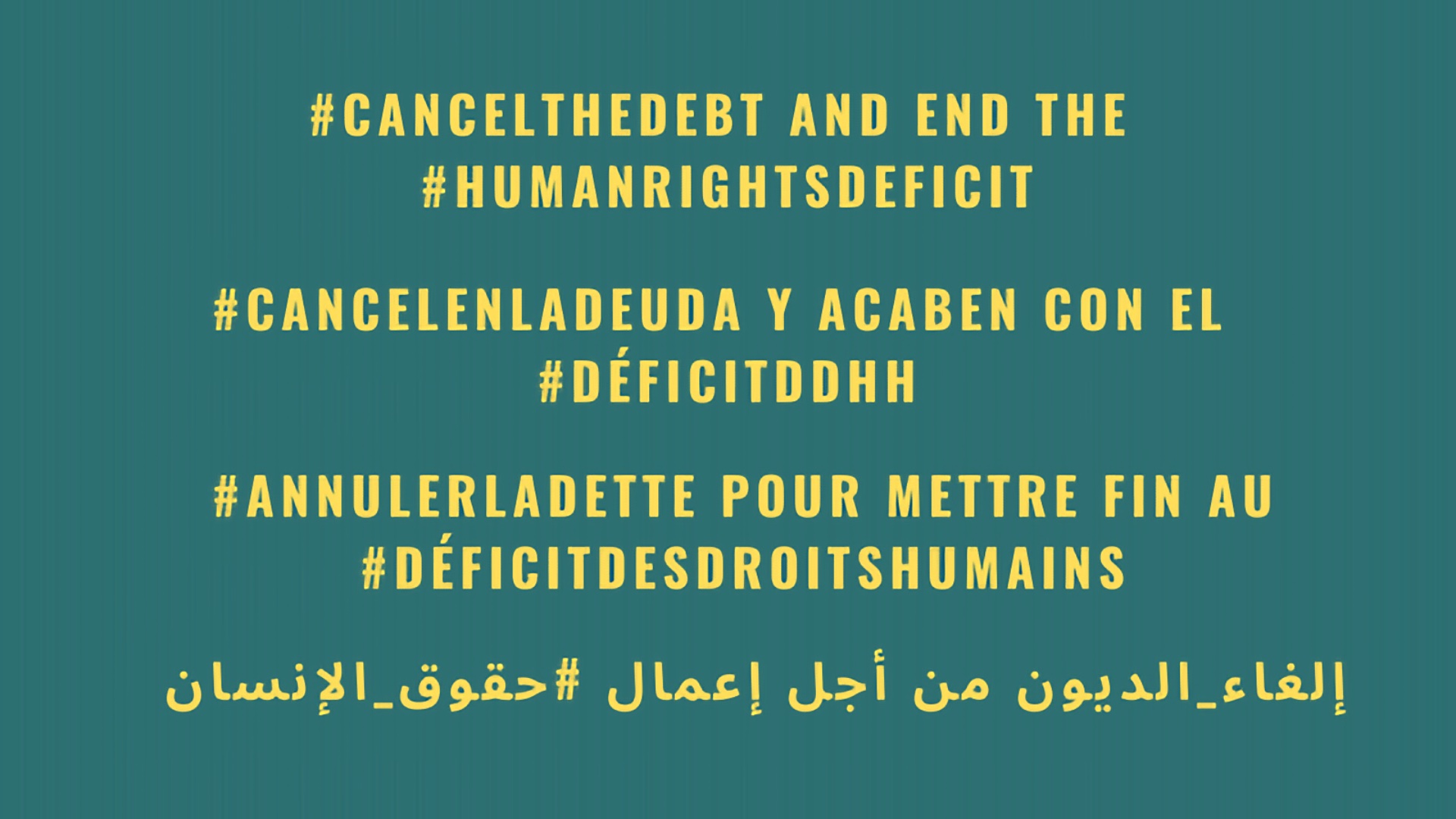

On the occasion of the International Monetary Fund (IMF)/World Bank (WB) Annual Meetings (October 11-17) members of the ESCR-Net Economic Policy Working Group are inviting you to join a shadow event and Twitterstorm to exert pressure and amplify demands on "Debt cancellation to realize economic and social rights".
Why:
Even in the midst of the pandemic, the IMF and World Bank continue to largely operate as usual by offering emergency loans and sinking poor countries into unsustainable debts instead of meaningful debt cancellation and long overdue reparations for decades of policies that left people poorer and replaced colonialism with economic imperialism that undermined human rights and benefited corporate and financial actors.
How we are responding as a Network:
In line with our public statement of demands in March 2021, we will be joining the global push for debt cancellation for low and middle income countries.
Thursday, October 14
Join us in our shadow event on “Debt cancellation and the realization of human rights”.
Fellow members from Haiti, Kenya, Argentina, Egypt, Jordan and Zimbabwe will be sharing concrete case studies from different regions that demonstrate the negative impacts of the conditionalities and structural adjustments imposed by the IMF as a condition of debt relief or restructuring on human rights. More info here.
From Tuesday, October 12 to Thursday, October 14
Join the Twitterstorm to demand the IMF to #CancelTheDebt and End the #HumanRightsDeficit
- Use our social media kit with key hashtags, handles, messages and images (in English, Spanish, Frenchand Arabic)
Learn more:
ESCR-Net members have compiled case studies from several countries that are facing social, economic and political impacts of sovereign debt burdens related to IMF impositions and practices.
DOWNLOAD THE CASE STUDIES:
- In English, Spanish, Arabic (French coming soon)
* These case studies were developed by members of Economic Policy Working Group including; Egyptian Initiative for Personal Rights (EIPR), Centro de Estudios Legales y Sociales (CELS) and Fundación para el Desarrollo de Políticas Sustentables (FUNDEPS), Institute for Justice and Democracy in Haiti (IJDH), Phenix Center, People’s Health Movement-Kenya (PHM-Kenya), and Mela Chiponda, an individual member of ESCR-Net.
For more information, please contact Collins Liko, Economic Policy Working Group Coordinator at cliko@escr-net.org

